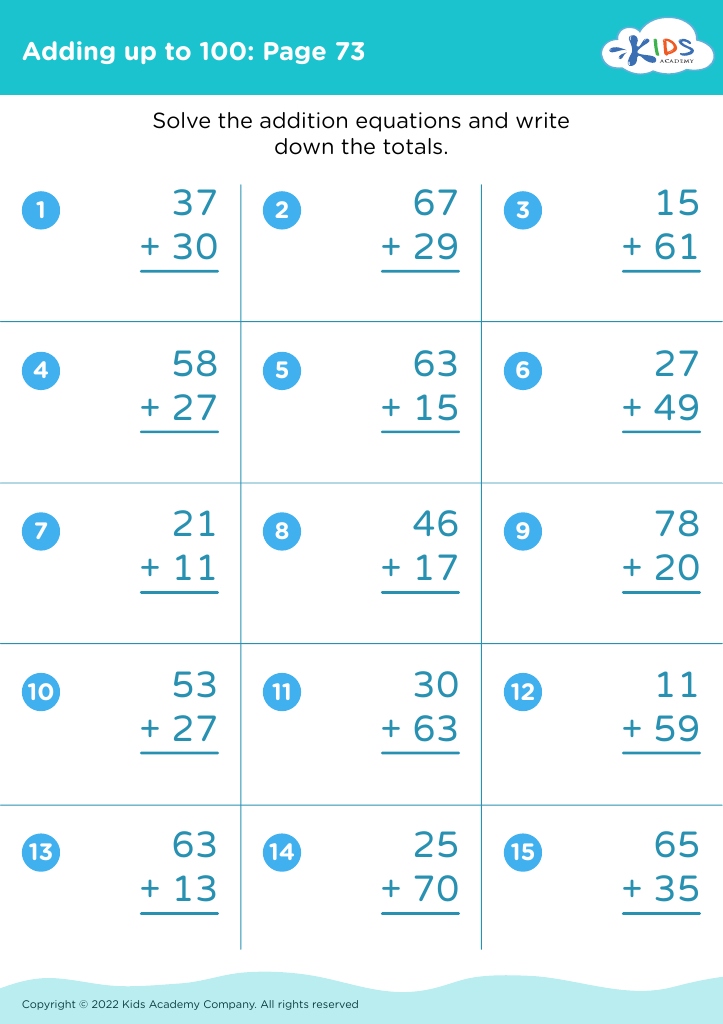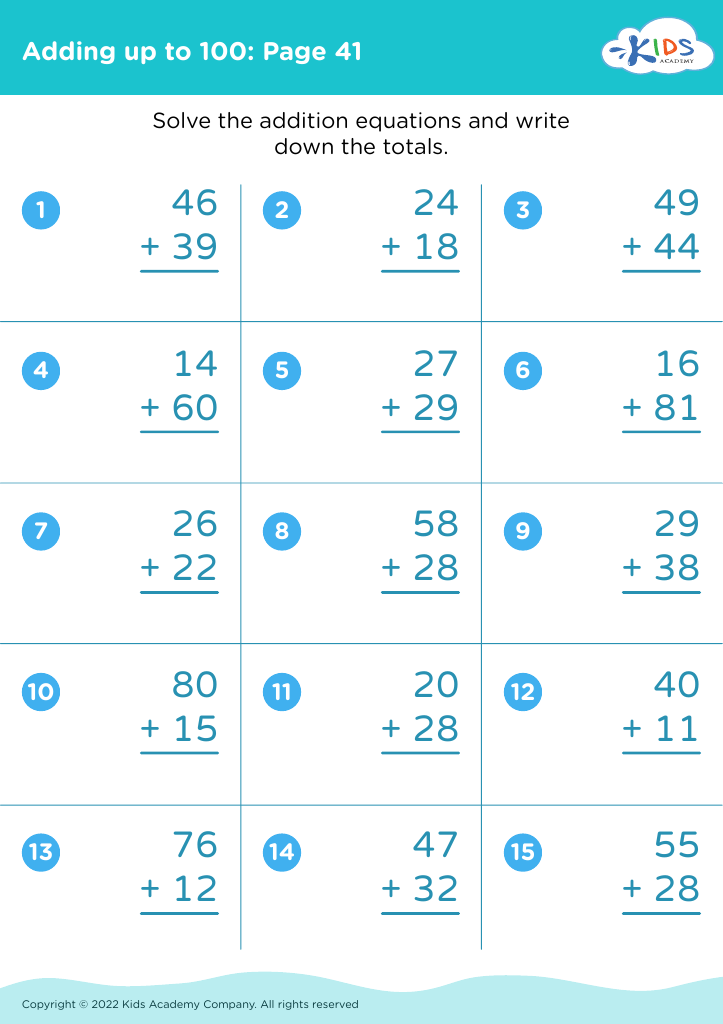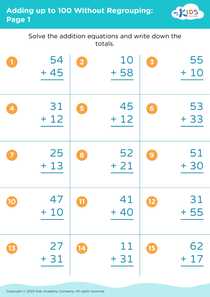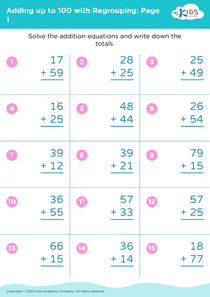Basic Math Skills Adding up to 100 Misc Worksheets for Ages 7-8
5 filtered results
-
From - To
Enhance your child's math journey with our Basic Math Skills Adding up to 100 Misc Worksheets, designed specifically for ages 7-8. These engaging worksheets from Kids Academy focus on improving addition fluency, strengthening number sense, and boosting problem-solving skills. Perfect for classroom or at-home learning, these printable exercises cover diverse addition scenarios, ensuring a comprehensive understanding of adding numbers up to 100. Let's make math fun and accessible, turning learning into an enjoyable adventure for your young mathematicians!
Basic math skills, especially addition up to 100, form the cornerstone of a child's future academic success and daily life functionality. At ages 7-8, children are developing the cognitive abilities necessary for more complex problem-solving and critical thinking. Mastery of addition within this range boosts confidence in their mathematical abilities and builds a strong foundation for more advanced concepts such as multiplication, division, and fractions.
In both educational settings and real-life scenarios, proficient addition skills are indispensable. From counting money and telling time to making sense of measurements in recipes or projects, these basic math skills ensure children can navigate their environment effectively. Furthermore, being adept at addition fosters logical reasoning and enhances memory, promoting overall intellectual growth.
Parents and teachers play a crucial role in supporting this developmental stage. When children see that adults value their progress, they are more likely to adopt a positive attitude towards learning. Through engaging activities, practical applications, and consistent practice, adults can help children solidify these essential skills. Investing time and resources into teaching basic math is not merely about academic achievement; it's about equipping children with lifelong tools they will need to solve problems, manage tasks, and make decisions proactively and accurately.















